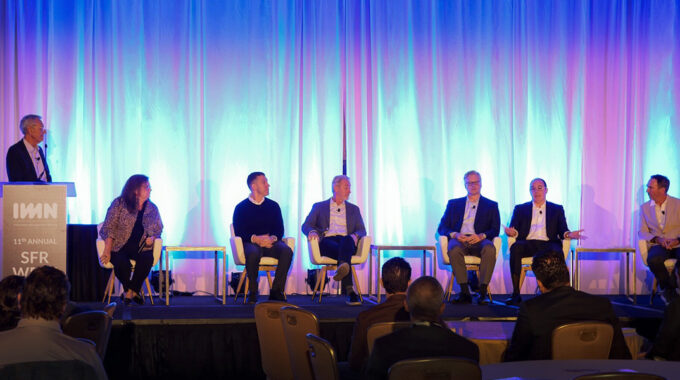CoreVest Finance recently attended the MBA CREF/Multifamily Housing Convention & Expo in San Diego, CA.…
Consider the Mortgage Multiplier Before Locking in Your Investment Capital

By Hunter Latta.
This past December, the Feds announced their fourth rate hike for 2018. While rates remained unchanged in their first announcement of 2019, the Feds still projected two more rate changes this year. Without a doubt, we are in a rising interest rate environment. The days of lower half single-digit interest rates for investment property may soon be gone.
In the housing industry, there are some things lenders don’t control – federal interest rates being one of them. This base rate impacts all interest rates. Sure, you could call around to shop for lower investment loan rates, but are rates the only factor of a loan? Do slightly lower interest rates, for example, offset the tradeoff in high hidden fees, poor service, lost time and closing uncertainty?
Even if you are one hundred percent rate sensitive, finding a lender with rates that you can stomach while also offering the highest possible leverage is arguably the best thing you can do for your real estate investing business, regardless if you’re a new investor or a seasoned vet. If you’re asking yourself, “What is he talking about?” – I’m talking about the power of a mortgage multiplier.
Would you like to speak to a loan specialist?
By using this method, you are essentially finding a lender that is willing to give you more investment dollars so that you tie up less of your money in one transaction. This gives you the ability to acquire even more properties.
Here’s How the Numbers Breakdown:
If you’re leveraged at 75% LTC/LTV, you can buy 4 times what you could if you used all cash. Pretty good, right? But, if you find a lender that is willing to give you 80% LTC/LTV, that number jumps up to 5 times the number of properties than you could purchase with all cash. Now let’s say you find someone that is willing to give you 90% LTC/LTV, that number leaps up to 10 times the number of properties or projects. Let’s apply these numbers to a simplified scenario.
Say you’re purchasing properties for a total cost of $100,000 (purchase + renovation) and you are a real estate mogul that knows the area very well. You have $500,000 to invest and the average estimated ARV is $150,000. Again, you’re the investor in your area and you crush it and are adhering to the 1% rule; a rule of thumb used to determine if the monthly rent earned from an investment property will exceed that property’s monthly mortgage payment. What does the mortgage multiplier do for you? See the chart below. l.
| Average Total Project Cost | $100,000 |
| Average Property Value | $150,000 |
| Number of Attainable Properties Using All Cash | 5 |
|---|---|
| Cash to Invest | $500,000 |
| Gross Monthly Rent (1% Rule) | $5,000 |
| Number of Attainable Properties Using 75% Leverage | 20 |
| Total Potential value | $3,000,000 |
| Gross Monthly Rent (1% Rule) | $30,000 |
| Number of Attainable Properties Using 80% Leverage | 25 |
| Total Potential value | $3,750,000 |
| Gross Monthly Rent (1% Rule) | $37,500 |
| Number of Attainable Properties Using 90% Leverage | 50 |
| Total Potential value | $7,500,000 |
| Gross Monthly Rent (1% Rule) | $75,000 |
There is an astounding difference between cash, leverage and slightly more leverage when you run the numbers. With the power of a mortgage multiplier at 90% leverage, not only are you able to purchase 10 times the number of properties as you can with all cash, you will also have more total property value and potentially much higher volume of gross monthly rent. This is why factoring leverage is critical, especially for investors who have only looked at interest rates in the past.
Currently, CoreVest offers up to 90% total loan to cost or 70% ARV LTV (the lesser of the two) on our credit lines for investment properties. The above numbers won’t apply to every investor as there is a lot that goes into the execution of these numbers. To be able to execute and attain that kind of cash flow, investors will need the liquidity and infrastructure to do so.
That being said, I would be happy to apply this analysis to your portfolio using your actual numbers and show you the potential you can unlock by working with CoreVest and utilizing our loan products and the mortgage multiplier. Whether its multifamily loans or rental portfolio loans, CoreVest can help.
CoreVest provides attractive long-term debt products for stabilized rental portfolios as well as credit lines for new acquisitions. For more information about how CoreVest can help you grow your rehab or rental business, please call Hunter Latta at 949.304.5928 or email [email protected].
#IG


